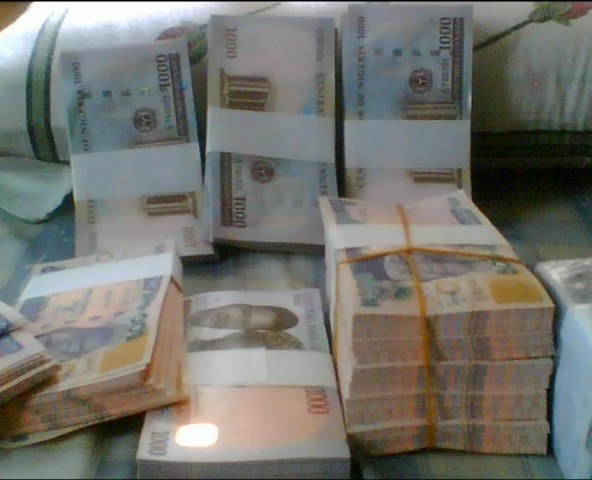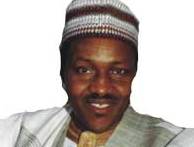Sovereignty rests on the mafia, not the people.
A major crisis bedevilling Nigeria’s general election this year is not non-preparedness for free and fair polls or how the electorate will vote. It is the lack of agreement among the country’s kingmakers, who have at different times been described as “godfathers”, “the cabal” or “the mafia”. Hardly does anyone come to power, at least at the presidential level, without their endorsement. It is believed that the local mafia first opened the doors for the insurgents now fighting in the north-east.
The two leading presidential candidates, President Goodluck Jonathan of the People’s Democratic Party (PDP) and retired General Muhammadu Buhari of the All Progressives Congress (APC), understand that the actual “electorate” are the kingmakers made up of some foreign powers, “statesmen”, wealthy businessmen, propagandists, players in the oil industry, arms contractors and even criminals…
The foreign and local conspirators using “Boko Haram” to destabilize, disintegrate and perhaps annihilate “Africa’s superpower” have been unrelenting. After Libya, Nigeria is next. “Boko Haram” has stepped up attacks on villages and towns in the north-east and could cause a major upheaval during a standoff likely to follow the presidential poll slated for February 14. Then, the mafia would step in.
For different reasons, a majority of the cabal have rejected both Jonathan and Buhari. Some from the north have not forgiven Jonathan for taking the north’s slot in 2011 when he should have given way to a “northerner” after completing the first tenure of Umaru Yar’Adua who died in office on May 5, 2010. Buhari is considered too strict and not healthy enough.
The kingmakers know, like everyone else, that votes at the election will not matter much. What is needed is a justification of their choice. Accordingly, the ground is being prepared to make the election of Buhari or Jonathan seem impossible.
The hawks know that money and power revolve around the presidency. It is members of the cabal that also select governors and most lawmakers. Their major interest is power to influence Nigerian leaders’ decisions as they concern matters like oil blocks, contracts and appointments.
When foreigners or institutions like the Brookings Institute of the United States make projections about the outcome of Nigeria elections, they obviously borrow from intelligence gathered from the country’s elite. There are no reliable polls. Pollsters, foreign and local, usually interview city dwellers that do not even have voter cards. The local kingmakers also provide foreigners with the necessary intelligence – the WikiLeaks revelations have made this clear, as have the Halliburton and Siemens bribe scandals…
From media to polling booth
The Nigeria elections have, for the past three to six months, been fought mainly in the social and mainstream media. They have been contested and won on Facebook, Twitter, Google+, newspapers and magazines (print and online). And the “winners” have virtually been sworn in at “Googlesquare”. Unfortunately for the “winning” candidates, most of the informed media gurus do not even have voter cards.
Conversely, a large majority of the actual voters (perhaps 90%) have no access to both the social and mainstream media and will not be guided by messages being poured into these media by supporters of the e-candidates. On the whole, therefore, most of those messages are being wasted.
The only possible advantage from them is a justification of phantom votes that election riggers hope to manufacture on Polling Day. Most of the electorate dwell at the grass roots where most media are unknown. Before they vote on February 14 or 28 and thereafter, they will likely be guided by “stomach infrastructure” and mundane sentiments about religion and tribe. Were their votes to count, the results of the elections would have no relationship with the “results” being peddled in the media…
Buhari, Jonathan et al
As current trends show, however, the kingmakers are having their way. Many in the ruling party have not publicly opposed calls for shifting of the polls already scheduled to hold on February 14 and 28. Not receiving assurances on the field, they prefer a postponement to enable the campaign team to work for Jonathan’s victory. Former president Olusegun Obasanjo, with each foot on the PDP and the APC, has called for an interim government. Olabode George has asked for a postponement. President Jonathan said nothing until the American secretary of state John Kerry visited. But the APC, apparently hoping to win, has been shouting from the rooftops against any plans to postpone the polls. Buhari, Atiku Abubakar, certain newspaper publishers and other bigwigs of the opposition party do not want any disruption.
The kingmakers have been paving a road to a stop-gap arrangement or interim national government (ING) that would take over from the incumbents and organise “credible” elections. Their supporters are increasing by the day. And the disciples include those who lost to Jonathan and Buhari at the party primaries: some express the opposite of their intention in the media while they work with the kingmakers behind the scenes. By its analyses and news slants, government-owned radio and TV stations are already tilting toward shifting the polls.
Targeting INEC
Getting INEC to postpone the polls has been difficult. Even though the chairman, Professor Attahiru Jega, all the commissioners and directors are appointees of the ruling party, not all of them are pandering to the party’s wishes. Even among some INEC chieftains, especially those from the north, anti-Jonathan sentiments are strong. These feelings have influenced certain decisions of the electoral body like creation of new polling units (until it was stoutly resisted and dropped), registering of voters, and distribution of permanent voter cards (PVCs); they are likely to resurface during the voting process, collation of results and announcement of results.
While the APC is comfortable with these INEC’s shortcomings, the PDP is not. One of the reasons its chieftains want the polls shifted is to get rid of Jega whose five-year tenure will expire in July this year. It would then be possible to change him together with unwanted INEC commissioners and directors before the polls.
Although there are genuine reasons to shift or cancel the election outright, they are not the real reasons behind the views canvassed by the kingmakers: neither Jonathan nor Buhari is wanted. After all, no free and fair election has ever been conducted on the Nigerian soil. Rarely has the voters’ choice emerged as president, unless it agreed with the cabal’s choice. A majority of INEC chiefs say the electoral body is ready for February 14; a minority, mainly from the south, disagree.
The game plans
Realisation of the kingmakers’ agenda will follow a few steps. The game plans now include:
*Cajoling INEC to postpone the elections, if possible, to April or later: The apostles of postponement cite INEC’s lack of preparedness. Of the 68.9 million names on the voter register released in mid-January, only a fraction (less than 50%) of the permanent voter cards (PVCs) has been released to their owners. Jega’s INEC says it is a lie and that more cards have been distributed and almost all will be shared by the eve of Polling Day. Critics have, however, noticed that most of the cards being distributed belong to voters in the north.
Were the plot to shift the polls to April or later to succeed, meeting the May 29 handover date would likely be impossible.
*Using the Boko Haram insurgency as excuse to shift the polls: Section 64 of the 1999 Constitution has been a pawn in the hands of the kingmakers. Section 64 (2) and Section 135 (3) of the constitution provide: “If the Federation is at war in which the territory of Nigeria is physically involved and the President considers that it is not practicable to hold elections, the National Assembly may by resolution extend the period of four years mentioned in subsection (1) of this section from time to time but not beyond a period of six months at any one time.”
Everyone has admitted that insurgency in the north – it has killed no fewer than 20, 000 people and destroyed incalculable property including homes – qualifies as a war. Would elections be conducted in the three states of Borno, Yobe and Adamawa that have been under emergency rule for 18 months up until last November (and thereafter, even though the National Assembly has yet to renew the status)? Adamawa State governor James Ngilari called for the polls to be shifted to April because Boko Haram was in control of seven of the 21 LGAs in his state.
By the federal government’s own admission, the terrorist group is in control of no fewer than 17 local government areas in Borno and Yobe states; other authorities say it controls 70% of Borno. For a presidential election to be credible, the election must take place throughout the country. INEC chair Jega once said election won’t be conducted in troubled areas. But he has changed his mind: PVC collection rate in the north-east has surpassed the rates in most southern states. Even eligible voters among the 2 million displaced people have been assured they will vote.
Except for Tunde Bakare who hinged his position on the insecurity in the country, other high-profile commentators like national security adviser retired Col. Sambo Dasuki and Labour Party’s Dan Nwanyanwu have referred only to INEC’s shoddy distribution of PVCs.
Reconvening the National Assembly (it is on recess until February 17) to pass a resolution authorising the president to shift the polls is an option. But it may not be easy to get the lawmakers to arrive at such resolution, though many of them that have been stopped from seeking re-election at the primaries would vote for an extension of their tenure. Nevertheless, the kingmakers may explore this option if Jega’s INEC proved stubborn…
READ THE REST IN THE FEB. 1-14 PRINT EDITION
#













